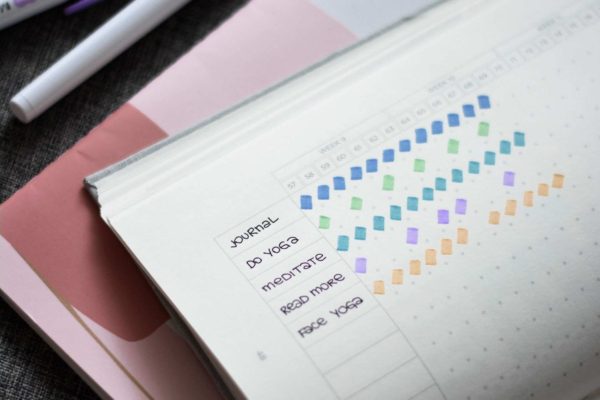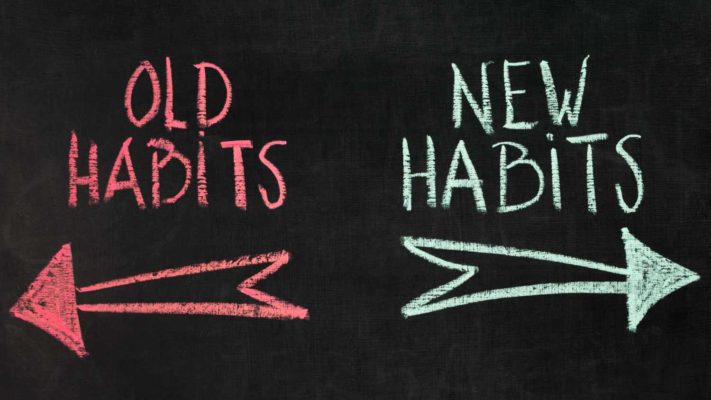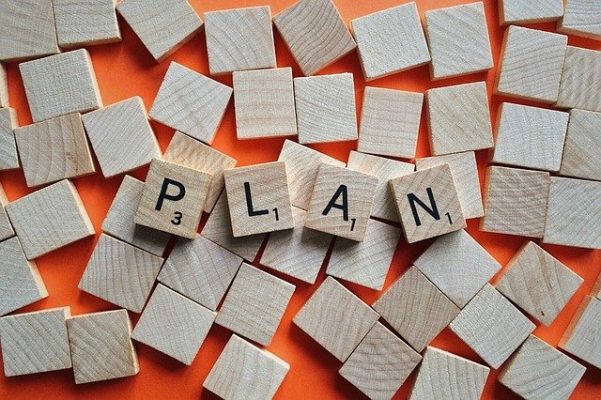Personal growth, Setting goals
How to break bad habits
How to break bad habits
We all have those things we are doing that we wish we could change, or the habits that we know that are good for us that we want to encourage. Are you sitting on the sofa binge watching TV all weekend? Eating too much bad food? Not going to the gym or for a walk as often as you would like or forgetting to drink enough water? Habits – good or bad are all part of our learned behaviours and sometimes feel impossible to change.
Here are some ideas on how to break bad habits and curb poor behaviours and to develop a better life by replacing them with good habits and building on the behaviours that you are already doing to solidify healthy and resourceful habits and behaviours in your life.

Are your current habits good or bad?
If we have a look at what you are doing now, what is in it for you? What are the primary and secondary rewards you are getting from the current behaviours? Ask yourself:
Am I doing this to avoid something else? A distraction from doing, thinking or feeling something you want to avoid?
Does this behaviour provide me with a positive outcome? Remove stress, promote health, take me toward my goals?
Do I feel as though I am using my time resourcefully?
Is there something else I could be doing that would create the same outcome that would be more resourceful?

Write down the rewards and outcomes you are getting from the behaviours you want to change. Once you have this list you can then come up with three items that you could do instead of the old behaviour to get the same outcome.
Example:
I watch too much TV.
I find watching TV relaxing after a long day at work.
Instead of watching TV I could:
Have a bath
Read a book
Call a friend

When you reward yourself with a new behaviour that creates the same outcome, from the example above this would be relaxing, your brain will then adopt a new habit of behaviour when you need to create this outcome. So instead of after a long day at work you finding yourself needing to watch TV to relax, you will have a bath or call a friend or read instead.
Identifying triggers
Identifying the trigger for the behaviours you want to change is also important. How many of us have been trying to quit smoking or drinking and then find ourselves out on Saturday night with our mates at the pub, drink in one hand smoke in the other? Maybe it is not that drastic, but you get the picture. Identifying the triggers will help you to break your bad habits.
What are the things that trigger the behaviours you want to change? Take a moment to think about the situations and surroundings that often are associated with the behaviours and habits you want to change. It may help to write down the times over a week or month that you find yourself participating in the behaviour you want to change. Look back over your notes for patterns and associated situations, times, people, feelings or activities.

Great! Now you have done the hard work, identifying the habits and when you have the cravings. Now, once again it is a matter of working out a new behaviour you can do instead of the old one. If you drink caffeine at 3pm every day for a pick me up, what can you do instead? Go for a short walk, have a cold glass of water, set yourself a fun activity that you enjoy doing at this time of day? Remember, it has to be something rewarding so you are still meeting the outcome of the craving – in this case a pick me up – but find a more resourceful way of creating this outcome. Make sure you have an idea of the replacement behaviour before the craving strikes as once you are in the moment unless you have a plan and knowledge of the new option you will find it easy to revert to the old habit.
Even then, with the best made plans and the ideas to replace the bad habits, it still takes will power. We all have a stronger level of resilience and will power when we are feeling at our best, so while you are creating the new habits in your life try to reduce stress, sleep well, exercise regularly, stay socially connected and take time to do activities you enjoy.
Find clear reasons for changing habits and behaviours
It is useful to have a really clear reason why you want to change the habits and behaviours. It is useful to make this a really personal focus or something that is really meaningful to you. This will also help in those moments of failing will power.
If you know you are exercising to make yourself more fit and able to be healthy to spend time with your children, think of the reasons behind this. What does it look like when you can do this? What happens if you decide not to exercise? What are the consequences of not doing the action? When you see the end goal not being met and the consequence of this, the will power will kick back in and remind you the personal need you have behind the change in behaviour.
Break your bad habits today
So start your journey to breaking those habits today. You may see different research stating a new habit can form in 21, 66 or 200 days, however long it takes does not matter. And if you find yourself reverting to the old behaviour, every day is a new day, every hour is a new hour, and every moment is a new opportunity to change your behaviour.
It does not matter how long it takes or how many times you may trip up along the way, the fact you are taking the journey and creating a new life path is a success and when you reach your goals the rewards will always outweigh the pain points you met along the way.

Next time we will speak more about how to encourage and adopt those behaviours you want to do more of and make into ongoing habits.
If you want some assistance with changing your behaviours and setting some good behaviours, contact me for a free 30 minute discovery life coaching session where we can explore your habits.


